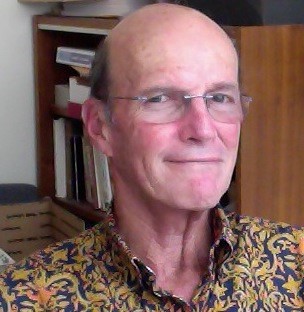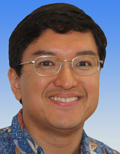
About
The Addiction Psychiatry one-year fellowship offers a unique opportunity for those who successfully completed 4 years of psychiatry residency training and wish to expand their training in addiction. The specialized skills obtained during training provide preparation for substance use consultation, assessment, and treatment in any setting or locale. Our program provides extraordinary opportunities for fellows to expand their knowledge and care with a diverse patient population via a cultural, biological, psychological, and social framework.
During the training the fellow will experience multiple sites in the community, both in outpatient and inpatient bases. Committed faculty members provide didactics and supervision. The fellow is given the opportunity to co-chair and plan the Annual Hawai’i Addiction Conference hosted by the University of Hawaii Department of Psychiatry and Department of Family Medicine. There are also ample opportunities to pursue research, academia, teaching, and public policy making.
The program seeks to train fellows to work as specialized clinicians who are well-rounded in clinical work, scholarly research, community service, and teaching. We are looking for motivated and caring physicians who have the heart to take care of this vulnerable population.
The Addiction Psychiatry program began in our department on July 01, 1998, when the program received ACGME accreditation. Our program is long-established and nationally well-recognized, being the first such program established west of the Mississippi and having led in establishing a collaborative, ASAM-supported addiction medicine program (2001).
To be a leader in providing education and training of addiction psychiatry fellows by exposing them to:
- A broad spectrum of state-of-the art substance use care and treatment of patients.
- Development of new models of substance use care and treatment.
- Treatment of substance use for all patients including special populations with a commitment to the disadvantaged, indigent and severely mentally ill.
- Research in both psychosocial and neurobiological in the specialty area of substance use to include: epidemiology, special population research, cultural psychiatry and prevention and treatment intervention, community-action, and policy among the ethnic groups of Hawaii, Asia and the Pacific.
The philosophy of addiction psychiatry training program is based on the understanding that addiction is a chronic and complex disease that affects individuals physically, psychologically, and socially. It values a holistic approach that considers the underlying causes and co-occurring conditions of addiction. The program emphasizes treating addiction as a medical condition, not a moral failing, and encourages trainees to approach patients with empathy and respect. By integrating evidence-based practices and collaborating with other healthcare professionals, community organizations, and support systems, the program aims to provide comprehensive and individualized care that supports long-term recovery and respects the dignity of each individual.
To graduate competent addiction psychiatry fellows who can:
- Effectively evaluate and manage patients with substance use disorders.
- Assume diverse contemporary roles, including clinical services, administration, consultation, teaching, advocacy, policy making and research.
- Expand the provision of care within Hawaii’s health system of care.
Core Faculty
The faculty for the Addiction Psychiatry and Addiction Medicine programs are a diverse group of educators and clinicians who work collaboratively to:
- Educate fellows and other healthcare providers in resources, guidelines and best practices in the area of addiction.
- Create and change local and national policies and laws to expand and improve the treatment and support of patients with substance use disorders.
- Increase awareness and understanding of addiction as a medical condition to help reduce stigma and dispel myths and misconceptions.

















